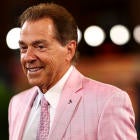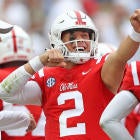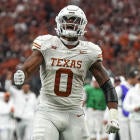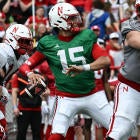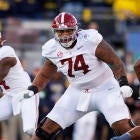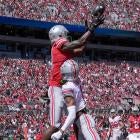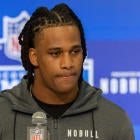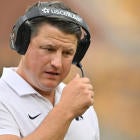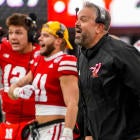“Regrettable actions” regarding irregular classes to University of North Carolina athletes do not mean legal action can be taken in court, the university argued in federal court filings Friday.
The NCAA and North Carolina, defendants in a lawsuit over the UNC academic fraud scandal, filed additional arguments about why the case should be dismissed. The suit was brought by former UNC women’s basketball player Rashanda McCants and former UNC football player Devon Ramsay and is being led by the attorney who won the Ed O’Bannon names, images and likenesses case against the NCAA.
Last October, an independent report commissioned by North Carolina showed that the university’s athletic department pushed athletes into a system of fraudulent, no-show classes to keep players eligible. Of the 3,100 students who took the “paper” African-American Studies classes over 18 years, 47.4 percent were UNC athletes. The NCAA has previously said its enforcement staff is investigating the academic fraud at UNC.
“The University acknowledges that certain irregular classes were offered by the Department of African and Afro-American Studies (“AFAM”) for a period of years prior to 2011,” UNC wrote in Friday’s filing. “But it cannot accept Plaintiffs’ attempt to characterize their isolated experiences of enrolling in and receiving credit for one or two of these alleged ‘paper classes,’ among an entire course of study that they admit was otherwise academically sound, as a recompensable claim. Not all regrettable events are actionable in a court of law, and that is the case here.”
The NCAA reiterated there’s no “viable legal claim” against the association when schools break NCAA rules. The NCAA wrote that it “did not voluntarily assume a legal duty to ensure the academic integrity of courses offered by its member institutions,” and that its enforcement model “creates no legal duty to prevent NCAA members from violating NCAA rules.”
The NCAA said the plaintiffs’ only allegation against the association — that the NCAA did not divulge information about the fraudulent classes during the class period — doesn’t specify what information the plaintiffs think the NCAA had at the time or show how the NCAA knew about the classes. “Indeed, Plaintiffs insist that even they could not tell that the classes were unsound at the time they were enrolled in them,” the NCAA wrote.
North Carolina argued that the plaintiffs “cannot credibly claim” that the occurrences of some improper classes means the former players did not have a high quality education. Even if they show that, UNC wrote, the suit must be dismissed as “unrecognized” educational malpractice claims.
“Plaintiffs cannot have it both ways: either they are complaining about the quality of their education as whole, or they are complaining about isolated classes,” North Carolina wrote. “Neither is actionable.”
North Carolina said it is “not credible” that the former UNC players discovered the deficiencies in the classes in 2014, six to eight years after receiving class credit, and they could have complained or inquired about the academic soundness of the classes at the time. “Such deficiencies would be obvious to any college student, especially Plaintiffs who could compare these alleged ‘paper classes’ to the rest of the admittedly sound classes they took during their enrollment at the University,” North Carolina wrote.
North Carolina said it is immune from suit in federal court based on the Eleventh Amendment that recognizes sovereign immunity.
The McCants plaintiffs have claimed North Carolina waived immunity due to a breach of contract, citing “course directories, bulletins, schedules, and otherwise” as implied contracts related to a student’s education. North Carolina said those types of documents “are not contractual in nature unless expressly incorporated into a contract.” The university also argued that no North Carolina court has found an actionable breach of contract claim based on alleged insufficiencies of a single class.
North Carolina’s court response was filed by Los Angeles law firm Skadden, Arps, Slate, Meagher & Flom, LLP and the office of North Carolina attorney general Roy Cooper. Skadden, Arps, Slate, Meagher & Flom is currently representing the NCAA in the Martin Jenkins lawsuit brought by Jeffrey Kessler that seeks a free market for football and men’s basketball players to be paid. For the UNC lawsuit, the NCAA is being represented by O’Melveny & Meyers LLP in Washington D.C.













